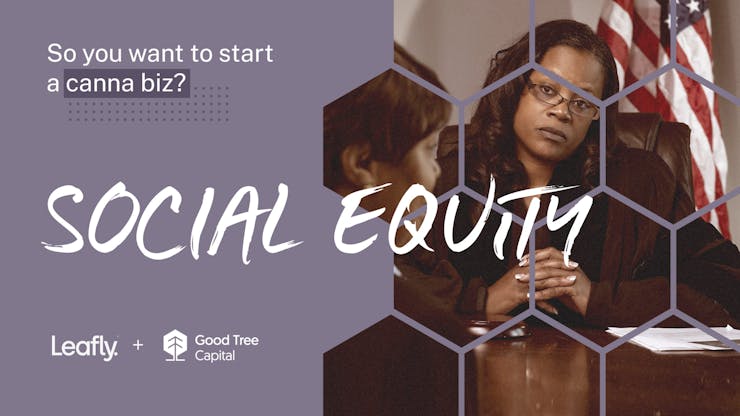Future cannabis business owners should also prepare for the role they can play in creating an equitable cannabis industry.
Some aspiring cannabiz owners are flush with resources, but there are also many people who deserve a chance in this industry that haven’t been given a fair shot.
The state of Illinois serves as a real example for well-intentioned plans designed to deliver equity. But when it came down to it, many cannabis business owners and cannabis advocates felt underserved.
That’s when cannabiz owners organized and took matters into their own hands.
The first steps towards Illinois equity
On June 25th, 2019, Illinois Governor JB Pritzker signed the Cannabis Regulation and Tax Act, or Illinois House Bill 1438. Pritzker coined this moment as “a new era of social equity, reversing harms caused primarily to people of color by the war on drugs.”
HB 1438 made Illinois the first state in the nation to include social equity provisions in cannabis legislation. These provisions gave the Illinois cannabis industry a boost of equity that many states that had previously gone legal didn’t take into account including:
- promises to expunge an estimated 700,000 Illinoisans convicted of marijuana-related offenses
- using tax revenue to support historically disenfranchised communities
- bolstering diversity amongst the industry by awarding points to the application score for those who met certain social equity qualifications.
Cannabiz owners spot faulty measures
While this bill was heralded for being progressive, lucrative, and restorative, social equity license applicants quickly learned that the bill was not as equitable as promised. It included loopholes that allowed established, deep-pocketed companies to beat out aspiring canna-biz entrepreneurs for licenses.
One of these loopholes allowed companies to earn social equity qualification just by hiring a workforce made up of people that could qualify for social equity themselves – which many applicants coined as the “slave master clause”. By employing these people, the businesses could score higher on social equity applications.
As a result, out of over 900 dispensary applicants, only 21 were chosen to enter the lottery for 75 licenses, and the few chosen were not reflective of the diversity that the social equity program was created to foster.
Cannabiz owners banded together and demanded that Illinois lawmakers get it right. The pressure they applied was enough to get their government to listen to more community voices and work harder to integrate equity into the state’s program.
More voices, less inequity
Aspiring cannabis entrepreneurs spent months fighting for Illinois to right these wrongs. They lobbied their legislators, organized rallies, held press conferences, and demanded justice. As a result, IL State Representative Lashawn Ford brought forth House Bill 1443.
This bill called for rescoring of social equity applications, lower thresholds to qualify for to be entered into license lotteries, and created 110 new recreational marijuana licenses that cannabis businesses could receive.
HB 1443 also removed the slave master clause, replacing it with the classification of “Social Equity Justice-Involved” which is based on majority-ownership, rather than majority-workforce, being people from disproportionately impacted areas.
In May of 2021 the updated equity bill was passed, giving social equity applicants a fairer shot. In a statement on how Representative Ford created this legislation, he expressed that it was composed directly from “the language that’s coming from the social equity applicants.”
By having the voices of the cannabis entrepreneurs front and center, the legislation also solved the biggest pain point faced by social equity cannabis entrepreneurs—lack of access to capital.
The model established in Illinois has the power to become the new standard across the country, from the ideas proposed to the activism demonstrated. The Illinois cannabis market is off to a unique start with its focus on equity, access, and the voices of the community who deserve their place in the cannabis industry.
Tips for cannabiz owners seeking equity
- Organize with other owners to find strength in numbers
- Hold legislators accountable for real-world equity solutions
- Advocate for underrepresented owners in cannabis legislation
Ready to start your cannabiz in Illinois?
With the creation of the Cannabis Social Equity Loan program, Illinois social equity cannabis business owners can access financial assistance in the form of low-interest loans and technical support.
The Illinois Department of Commerce and Economic Opportunity (DCEO) set aside over $30 million to ensure equity and opportunity for entrepreneurs looking to enter the cannabis industry in the Land of Lincoln. The loans are exclusively for social equity licensees, serviced and originated by Good Tree Capital.






